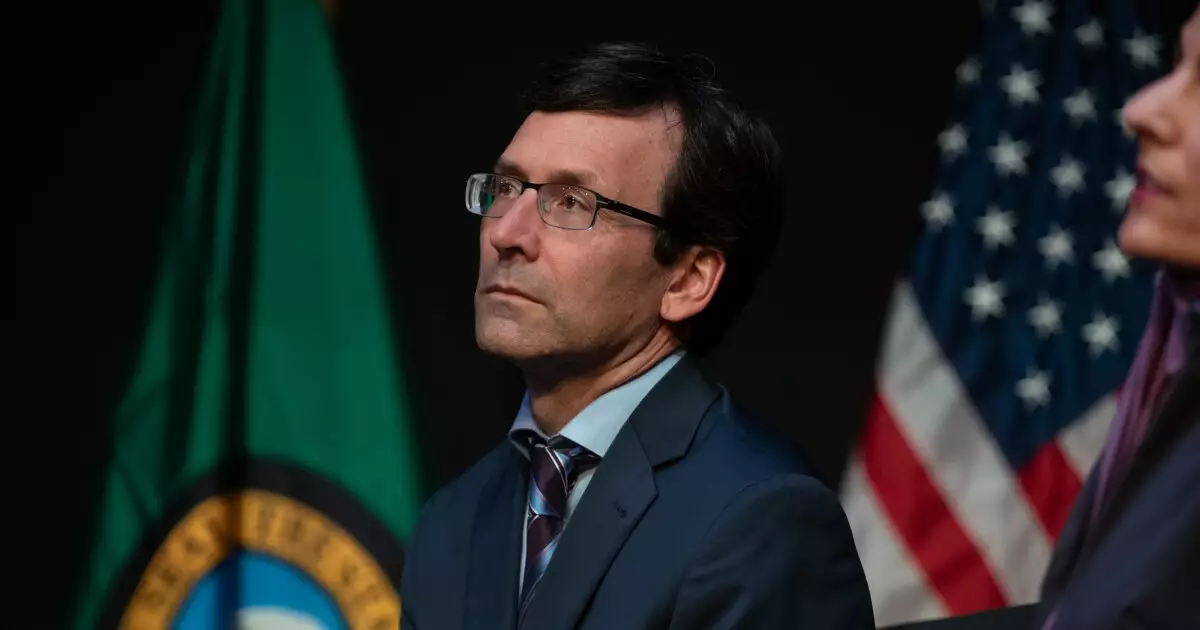In a remarkable twist of events, Washington state’s new governor, Bob Ferguson, has sent a clear message to the legislature regarding its budget proposals. After the House and Senate passed their versions of the operating budget, the celebrations felt premature. Ferguson’s firm stance indicates a dramatic need for change—a necessary recalibration to address a budget shortfall forecasted at a staggering $16 billion over the next four years. Having served as Attorney General, Ferguson understands the intricacies of the state’s financial system. However, his initial red flags suggest a clash of ideologies between fiscal responsibility and expansive welfare initiatives.
The implications of his decision are profound. Ferguson’s immediate rejection of both budget proposals stemmed from what he described as an excessive reliance on taxes, particularly a wealth tax that, while groundbreaking, poses significant practical challenges. The governor criticized these legislative measures as overly ambitious in a time of uncertainty. His directive that the legislature needs to “immediately take things in a significantly different direction” is a call to arms for lawmakers to rethink their fiscal strategies. This is not merely about numbers on a balance sheet; it’s about the future of Washington’s economy and the viability of its public services.
A Dismal Financial Outlook: The Reality Check
Adding complexity to the fiscal landscape is the disturbing revelation that federal funding—a substantial 28% of Washington’s budget—is likely to diminish further. With both anticipated cuts from the federal government and state economists lowering revenue projections, the state is poised for a fiscal storm that threatens core public services. It’s imprudent for lawmakers to base a balanced budget on uncertain federal dollars that support critical programs like Medicaid, education, and disaster response. Eagle-eyed observers and fiscal conservatives should worry: the reliance on unpredictable federal funding can lead to a precarious state budget.
Budget realities have consequences that extend beyond spreadsheets: hospitals are reportedly laying off hundreds of employees due to cuts to federal funding. The implications are chilling—if we cannot ensure adequate funding for essential services, we jeopardize the health and safety of Washington’s residents. Governor Ferguson’s alarm over these developments frames a central dynamic: when local reserves are drained, the state becomes vulnerable to economic fluctuations.
A Call for Pragmatic Solutions
Ferguson’s reluctance to endorse any budget reliant on new, untested revenue sources like a wealth tax is a prudent stance. He rightly highlights that the courts may strike down such taxes, effectively unraveling any sense of stability lawmakers hope to achieve. This is not just speculation; it is a clear-eyed assessment of political realities. The status quo must evolve, but it must do so within a framework of tested and sustainable revenue models.
The governor’s insistence on protecting the rainy-day fund is imperative. It is a cushion against economic shocks that can protect vital services. An informed electorate should recognize that maintaining the credit ratings, backed by sufficient reserves, enhances the state’s ability to borrow funds at lower costs—a vital consideration for investing in critical infrastructure. Anyone who has experienced the chaos stemming from an underfunded public sector knows that fiscal conservatism is not merely an ideological stance; it is a necessity for prudent governance.
Political Dynamics at Play: Clear Lines of Responsibility
While Ferguson may face criticisms for his strong stance, it is essential to highlight that the legislature’s proposals could also bear scrutiny. The political landscape has shifted drastically, yet lawmakers must respond to budget realities that call for clarity and responsibility. With an election coming, some may be tempted to stake their electoral futures on grandiose fiscal plans that promise much but fail to deliver. This short-sighted approach often leads to unnecessary controversies, further complicating negotiations and pushing essential services to the brink.
Washingtonians deserve leaders who can navigate the complex intersection of fiscal prudence and progressive values. It is reasonable to expect and advocate for investments that uplift communities rather than expansive proposals that could lead to fiscal insolvency. On the balance, the call for transparency, accountability, and a commitment to preserving essential services must guide discussions moving forward.
This budget crisis should serve as a wake-up call: it’s time for lawmakers to re-examine their priorities and reformulate their strategies, guided by the principles that preserve Washington’s financial integrity and ensure the welfare of its citizens amidst these mounting challenges.

